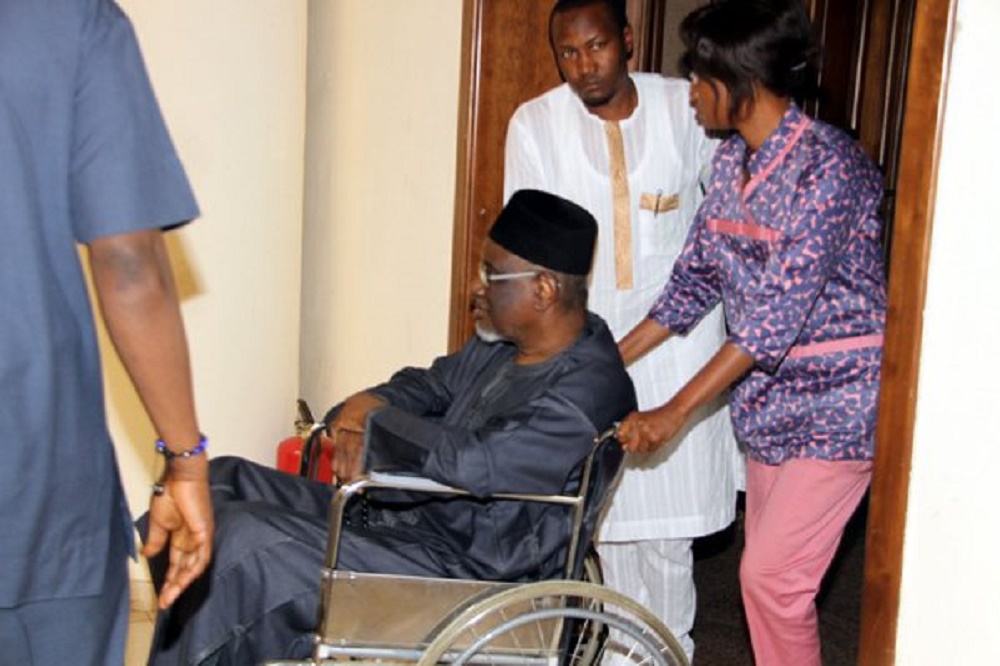The Socio-Economic Rights and Accountability Project (SERAP) has called on the Federal Government to extend the ongoing probe of alleged misappropriation of arms funds to include officials of the Central Bank of Nigeria (CBN) and commercial banks.
In a petition addressed to the Economic and Financial Crimes Commission (EFCC) and the Independent Corrupt Practices and Other Related Offences Commission (ICPC), the group requested them to “investigate the degree of complicity of Nigerian banks, including the Central Bank of Nigeria (CBN), and financial institutions in the large-scale stealing of over N70 billions meant for purpose of arms for Nigerian soldiers fighting Boko Haram in the northeast of the country”.
In the petitions dated January 5, 2016 and signed by SERAP executive director, Adetokunbo Mumuni, the group expressed “concern that while the CBN turned the blind eyes to corruption involving high-ranking government officials, it continues to engage in anti-poor policies such as introducing charges for use of Automated Teller Machine (ATM cards, and threatening to send to jail economically and socially disadvantaged citizens who use dollars for local transactions.”
“This inconsistent and discriminatory approach of penalising the economically and socially disadvantaged citizens for minor infractions while showing no concern about the over N70 billion stolen arms purchase funds is unlawful as it is contrary to national and international anti-money laundering standards and best practices.”
“SERAP believes that the CBN cannot absolve itself of complicity in the stealing of the over N70 billion and that this large-scale corruption would have been prevented had the CBN been alive to its leadership and supervisory roles in the implementation of anti-money laundering standards within its systems and in other banks.”
SERAP called on the Chairman of the EFCC, Ibrahim Magu, and Chairman of the ICPC, Ekpo Nta, to “urgently institute a joint probe of the roles played by the leadership of the CBN and other banks and financial institutions in the stealing of over N70 billion arms purchase funds.”
“SERAP believes that the efforts to identify responsibility for the heinous crimes committed against the Nigerian soldiers and their families should include the roles that banks and financial institutions played by aiding, abetting or failing to exercise due diligence to prevent the stolen funds from being stashed in their institutions, and thereby exacerbating the conflict in the Northeast.”
“SERAP is seriously concerned about CBN’s commitment and ability to tackle high-level official corruption especially given that it was the CBN that facilitated, aided and abetted the emptying of the public treasury by the late General Sani Abacha. The CBN should have learnt from this experience and not allowed without questions the withdrawal of billions of naira within a short period of time by former National Security Adviser (NSA), Col. Sambo Dasuki (rtd), and former Minister of Finance, Dr Ngozi Okonjo-Iweala.”
“The CBN should have tightened up its systems after helping Abacha to steal billions of dollars from our commonwealth. Dasukigate suggests that the CBN has taken no action to improve its systems and due diligence.”
“By allowing excessive withdrawals by Dasuki and Okonjo-Iweala, the CBN has helped to fuel corruption in the arms purchase budget, and thereby contributed to the unnecessary loss of lives of many Nigerian soldiers and displacement of millions of law-abiding citizens.”
“The CBN’s longstanding complicity in money laundering also explains why it has failed to take action against domestic banks that are facilitating deposits of stolen public funds by Politically Exposed Persons or to encourage appropriate anticorruption agencies to pursue financial institutions abroad for their roles in corruption and money laundering in Nigeria.”
“Unless the CBN shows greater level of leadership and proactive supervisory authority, and takes its responsibilities seriously, corrupt politicians and high-ranking government officials will continue to find it easy to steal from the public treasury,” the petition read in part.
According to SERAP, this is the best opportunity the nation’s anti- corruption agencies have to prove to CBN and other financial institutions that the days of impunity and financial recklessness are over.
“The EFCC and the ICPC now have the chance to send a clear message to the leadership of the CBN and other banks and financial institutions that aiding and abetting corrupt government officials to steal from the poor will attract personal responsibility.”
“The CBN ought to have blown the whistle, and filed reports with the appropriate anticorruption agencies or other authorities. Assuming the CBN could not turn down the requests for withdrawals, it should have followed and monitored the spending of the funds. The CBN also should have been transparent in terms of the amounts of returned stolen funds kept with it. Nigerians have the right to know where stolen funds are being held and what they are being spent on.”
“Nigerians have the right to know what roles the leadership of the CBN and other banks and financial institutions abroad played in aiding and abetting the stealing of the arms purchase funds,” the petition stated.
SERAP therefore urged the EFCC and ICPC to urgently institute a joint probe of the roles played by the leadership of the CBN and other banks and financial institutions in the scandal.
The organization wants EFCC and ICPC to:
1. Name those within the leadership of the CBN that facilitated the withdrawal and subsequent stealing of the arms purchase funds, and ensure that anyone found to be responsible is brought to justice promptly
2. Name and shame any banks and financial institutions complicit in the arms purchase funds
3. Work with the National Assembly and civil society to devise a system that will stop the CBN being used by high-ranking corrupt government officials to steal from the public treasury. It is unrealistic to expect that the CBN will ensure that other banks have adequate systems in place to prevent the laundering of the proceeds of corruption if its own systems are seriously flawed. And high-ranking government officials will continue to exploit the CBN systems for their own profit at the expense of the public.
















